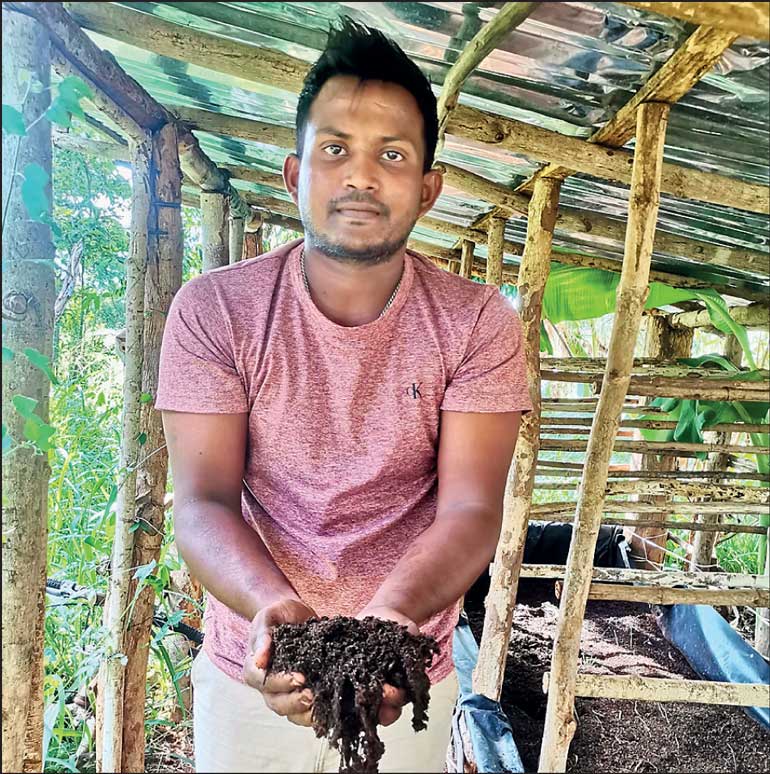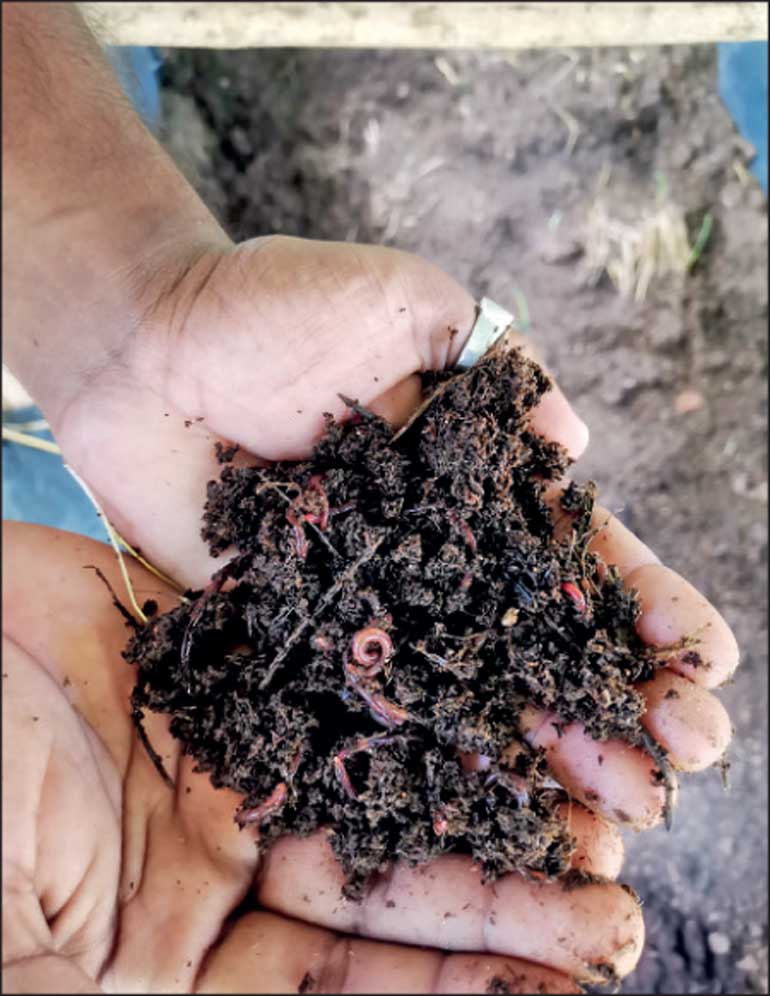Wednesday Feb 25, 2026
Wednesday Feb 25, 2026
Wednesday, 4 September 2024 00:02 - - {{hitsCtrl.values.hits}}

Founder Aruna Dilshan Rajakaruna

Organic vermicompost using organic waste and red earthworms
With the aim of contributing to Sri Lanka’s organic agriculture industry, Green Bees, a startup founded by a Sri Lankan duo Aruna Dilshan Rajakaruna and Nadeesha Chathurani, have taken measures to produce high-quality, sustainable organic vermicompost using organic waste and red earthworms, paving the way for alternative home-grown fertilisers made right here in the island.
Vermicompost, enriched with essential plant nutrients like nitrogen, phosphorus, and potassium, is crafted through the decomposition of organic waste materials by red earthworms. Initially, Green Bees prioritised farming red earthworms under controlled conditions to ensure optimal growth and reproduction.
This involves providing suitable conditions such as adequate food, water, and temperature control to encourage their reproduction. Once a sufficient population of red earthworms is cultivated, the organic waste is transported to the production site, where red earthworms decompose it, yielding vermicompost.
Consumers are now able to access eco-friendly organic fertilisers for their gardening or farming, and one that would contribute significantly to reducing waste and mitigating greenhouse gas (GHG) emissions. This innovative initiative was supported through the Green Innovation Challenge by HackaDev, an overarching program led by the United Nations Development Program (UNDP) in Sri Lanka, and their incubation partner, Curve Up Ltd., a consultancy focused on ed-tech and community and SME empowerment.
Following its inauguration, Curve Up went onto host comprehensive intro sessions and facilitated workshops and one-on-one coaching, followed by a milestone plan drawn up and other initial activities, covering legal, marketing, finance and related aspects.
To help build the infrastructure for vermicompost production, industry expert Mahendra Peiris shared his expertise and know-how on vermicomposting technology and its application. The team at Green Bees then conducted a resources assessment for the vermicomposting tanks which is currently in progress, taking into consideration drainage, ventilation, and accessibility, and complying with environmental regulations and waste management guidelines.
Further, the team engaged in purchasing red earthworms from approved reputable suppliers and introduced them to the vermicompost production facility to initiate vermicompost generation. The team actively monitors the temperature, moisture level, and pH levels of the vermicomposting tanks.
With this transformative product concept, Green Bees aims to revolutionise the country’s organic fertiliser industry with its innovative and sustainable vermicompost produce and contribute to the overall ecology and economy.